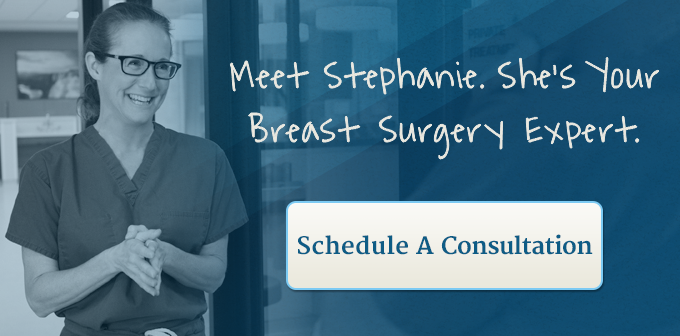Getting breast implants, here in the NY area or elsewhere, requires you to work closely with your surgeon in the planning phase. You must gain a clear understanding of the different breast implant options and make crucial decisions about your upcoming breast augmentation.
Doing research on your own typically comes first, of course. One of the most important areas for your research is in choosing the right surgeon for breast implants in NY and the surrounding area. You need to learn about your potential plastic surgeon’s background, years of experience, reputation and aesthetic sensibility.
In addition, you need to evaluate the interaction you have with your surgeon to help you choose the perfect NY area surgeon for your breast implants. After verifying facts, such as board certification and state licensure in NY or nearby NJ, you should choose the breast surgeon with whom you feel most comfortable.
Ask Questions to Get Facts and Expert Advice — and to Spark Discussion
When you meet with surgeons for breast implants in NY or NJ, it’s always best to ask about their background and experience, even if you have researched the basics. Part of the purpose of asking questions is to learn facts about your surgery, such as the risks involved.
Another purpose is to learn your surgeon’s particular philosophy and methods when it comes to breast augmentation. Asking questions will also get discussions going that will help you assess your surgeon’s communication style and see if you’re comfortable working with him or her.
Learn About Your Plastic Surgeon
- Are you Board-certified by the American Board of Plastic Surgery? (Check this before making a consultation appointment with your plastic surgeon. The ABPS is the only board in this field recognized by the American Board of Medical Specialties. Other sound-alike boards may not have the high standards of the ABPS.)
- How long have you been performing plastic surgery? Breast surgery? (Ideally, choose a surgeon who has spent many years focused only on breast surgery.)
- How many breast implant surgeries do you perform annually? (A true breast specialist will spend most of their time doing breast surgery, including breast augmentation and reconstruction.)
- How often do patients ask for or require revision surgery? Would you charge a patient for a revision if they were unhappy with their outcome? (Your surgeon should be comfortable answering these questions.)
- Do you have hospital admitting and surgical privileges, and where? (A well-known area hospital such as New Jersey’s Hackensack University Medical Center is preferred.)
- Can I speak to a prior patient? (Ask your surgeon’s former patient about their ability to reach the surgeon for questions during the healing process, etc.)
Learn about Breast Implant Risks
- Is breast augmentation safe? (Breast implants are safe, having been subjected to a huge amount of testing and scrutiny over the years. The design of implants has advanced over time. Today, depending upon your age and case details, you may never need to remove or replace them, unless you choose to because your preference for breast size changes, for example.)
- What are the chances of specific complications, during healing and in later years? (Risks of surgery and anesthesia, risks during your recovery and healing and long-term risks should be thoroughly discussed. This may include: excess bleeding; infection; loss of sensation; implant rupture; capsular contracture, where breasts harden when surrounded by scar tissue; rippling of the implant and breast skin; displacement of implants from their correct position and more.)
- How would a complication be handled? (An experienced surgeon should know how best to handle risks and complications to minimize their potential impact on your health and results, however, some risks are unavoidable. If you are particularly concerned about certain risks, or your surgeon thinks them more likely in your specific case, ask how such complications could be handled if they occur. This can increase your confidence going into surgery and let you know about your surgeon’s preparedness and honesty.)
- How long will my breast implants last? (Breast implants aren’t guaranteed to last forever, especially if you are young. However, there is no need to replace your implants unless you puncture one in an accident (saline noticeably deflates), suspect a leak, or have an issue such as visible rippling, scar tissue (capsular contracture) or displacement. The chances of the latter are minimized with an experienced NY surgeon who will ensure your breast implants are placed properly for a natural look and a long-lasting result. Some breast implant manufacturers offer a lifetime replacement policy on their products.)
- Can I breastfeed after getting breast implants? (Breast implants typically don’t prevent future breast feeding, but there can be complications related to breast function and sensation. Breasts may droop after childbirth, breastfeeding and/or weight loss, so many women choose to wait until after they have had children to get implants and and/or a breast lift. Discuss this with your surgeon in detail.)
Consider Implant Options and Decisions
- Which do you recommend for me, silicone or saline breast implants? (There are pros and cons to each type of implant, depending upon your individual needs. Silicone gel feels most natural, according to most women, and may work best for thin women or those with thin breast skin. Saline implants cost a bit less and are approved for women under 22 years old. )
- What size implants should I get? (Be very clear with your surgeon about how you want your breasts and body to look after surgery, and he or she can make a plan, including implant volume, to meet your needs and desires. If your surgeon feels the size or type you are leaning toward is not appropriate he or she will explain the reasoning and recommend an alternative.)
Learn what Happens on Surgery Day for Breast Implants in NY
- What type of anesthesia do you recommend for my comfort and safety? Tell me about your anesthesiologist or nurse anesthetist’s credentials and experience. (An MD anesthesiologist has the highest level of training.)
- Where is your surgical center? Is it accredited for safety? (Breast augmentation is most often done under general anesthesia in an outpatient surgery center. You should also ask questions about the surgical center, such as location and whether it is accredited.)
Get Breast Implant Surgery Details
- Where will my incision be? (Your surgeon will explain the advantages of each option. Depending upon the type of breast implant chosen and your personal characteristics, incisions may be placed: around the edge of the areolae, in the fold beneath your breasts or in the armpit.)
- Will my breast implants be placed under or over the muscle? Why do you recommend this solution for me? (There are several factors that must be considered when choosing the best placement respective to the chest muscle: over or under. The thickness of your breast and chest area skin, your natural breast size, your body type, the type of implants chosen and even your lifestyle habits all factor into deciding which placement will work best for you.)
Learn about Breast Augmentation Recovery
- How much time off from work is required? (Many women are back to mild exercise and office work in about 7 days, but your situation will be unique. Get an estimate from your physician based upon your age, physical condition, type of implant and placement, type of work, etc.)
- When can I drive? Walk around? (Always follow your surgeon’s specific protocol about these activities, and preferences differ from surgeon to surgeon. In general, you can move around and walk in your home soon after you get there, because this aids in circulation, but don’t strain yourself or raise your blood pressure with exercise. Your friend should stay with you for 24 hours, so that you don’t have to reach for things or bend over. Keep your upper body relatively still.
- When can I shower? Bend over? Pick up things? Don’t pick up anything, including your children, until your surgeon gives you the ok. You may need help with household chores or childcare for at least a week. Some surgeons allow you to shower within 48 hours after getting breast implants in NY, keeping your bandages covered with plastic wrap or a plastic bag to keep the area dry, avoiding water pressure to incisions. Immersing yourself in a bath tub will be off limits until your surgeon feels your incisions have healed sufficiently.)
Find out about Breast Implant Costs
- What is my total cost for breast augmentation? Is the cost of the surgery center, anesthesia, implants, follow up visits and surgeon’s fee included? (An especially high cost will not guarantee better quality and a bargain price could mean putting yourself into danger or getting a disappointing result. Find the NY breast implant surgeon who is ideal for you, an experienced surgeon that you trust, rather than shopping primarily on price.)
What Else Would You Like to Know about Breast Implants?
At Cohen/Winters Aesthetic & Reconstructive Surgery in Bergen County, NJ, we offer a consultation to answer your questions about breast implants. You’ll receive an exam and be asked about your medical history and your goals for breast augmentation. You’ll learn if you’re a good candidate for the procedure and if so, we’ll make a detailed plan to achieve your desired outcome. Contact us for your no-risk consultation today.


